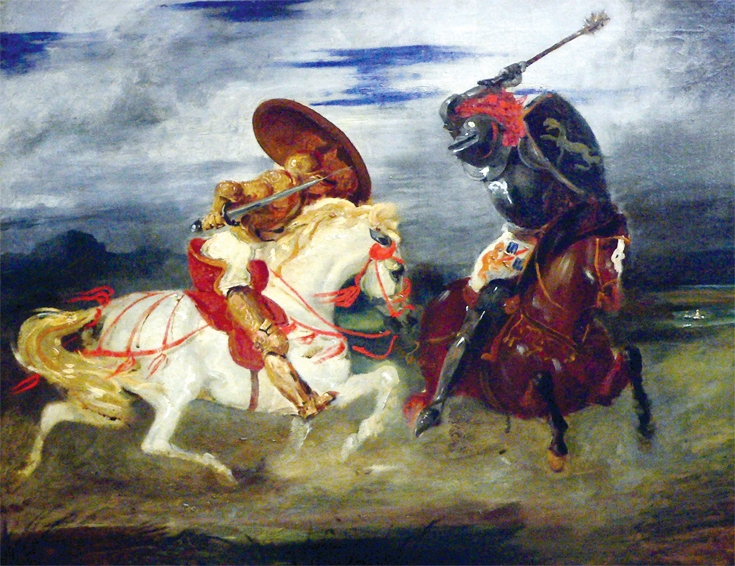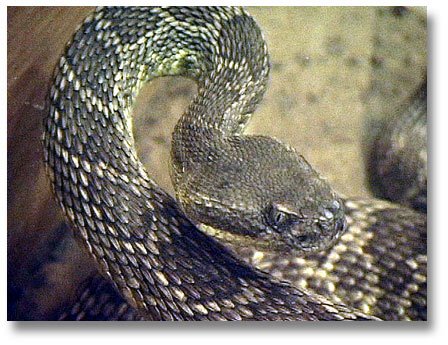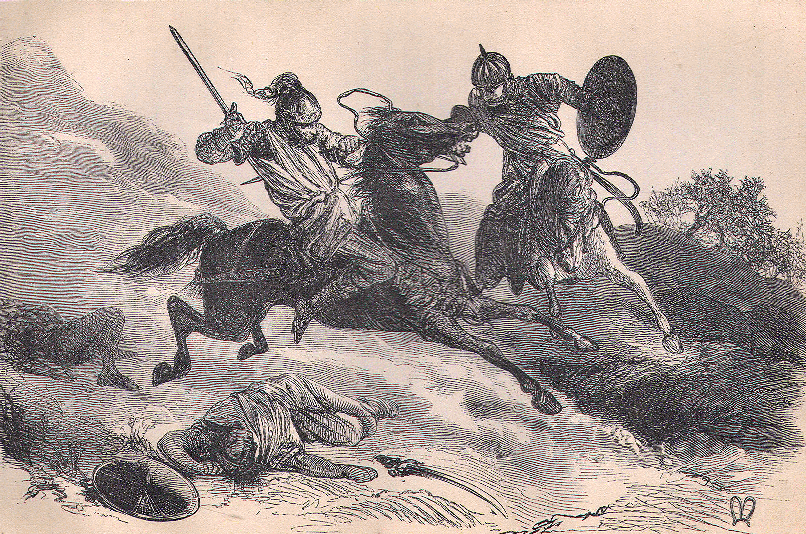[Though I always wanted to be a writer, I actually wrote surprisingly little back in the seventies before I did Tunnels & Trolls. The following short story is very loosely based on a brief romance I had with–I kid you not–a young witch named Ellen. Writers are advised to “write what you know”. The romance and break-up are real. The rest is imaginary. You shouldn’t have any trouble identifying the young Ken St. Andre in this story. I thought it was good. I submitted it for publication, though I no longer know where. It was rejected. I’ll share the rejection letter at the end.]

Kevin Strand was a null, a once-born, and bad news for any witch. For one thing, he was immune to magic; no charm or spell could affect him directly.
Elena wouldn’t listen to me. “You must be wrong,” she insisted. “You know how rare nulls are. Not one person in a million has a soul that has never been incarnated before. (That’s what a null is–a sould that has not existed long enough to accumulate any measurable amount of psychic power.) He’s only dormant. Besides, I love him. He’s so handsome, so humorous, so amorous.”
“Amorous!” I retorted. “He should be! He is a double Taurus. Both Sun and Moon were in the House of the Bull when he was born, and so was Venus. If that didn’t make a lover out of him, nothing could, but Elena, it’ll never work. You’re a double Scorpio. There’s not a poorer combination in all astrology.”
“Astrology be damned!” she flared. “You’re just a cat, Sam. What do you know of human love? Do I tell you which tabbies to chase?'” She was really angry with me. Her green eyes fairly blazed. Her thin oval face had gone so pale that her freckles stood out like stars on a clear night. “I love Kevin and he loves me, and that’s that! All the powers of Heaven and Hell couldn’t break us up now!”
I preened my silky white fur for a moment before replying. Personally, I thought she overestimated her own strength and the force of Kevin’s emotion by quite a bit.
“Diana doesn’t like it,” I told her. “You’re spending too much time with that human and not enough with the coven.”
“Diana can go to Hell!” Elena screamed. She picked up a glass of water from the kitchen table and threw it at me. I decided not to continue the discussion, and fled for the back yard. Being a familiar isn’t all a bowl of cream. Sometimes witches are just as unreasonable as ordinary women.
Me? My name is Mahasamatma–after the Lord of Light–but everyone calls me Sam. Most of the time I’m a blue-eyed pussycat, Siamese style, with a silky white body and a playful disposition. Sometimes, I’m a clouded sapphire worn pendant style around Elena’s fair neck and dangling down on a soft breast. Once in a while I have to be something noxious, like a toad or a bat, but Elena doesn’t go much for the perversions of sorcery.
Elena? She’s a woman (she whips me with a newspaper if I call her a girl.) of twenty-one, an art student at Aziroon College, a lithe and exciting danger, and a White Witch. She’s slender, but well-formed, pale without being pallid, and she has fine honey-colored hair that flows to her waist. She tends to dress and act a little like a nymphomaniac, but that’s just her naturally flirtatious nature showing. She ranks third in her coven, and is a princess of Cyrene, which is a nice little city-state on the Dream Plane.
And she deliberately left me behind when she went out on her date.
She got back at two in the morning, and she looked worried. The vivacity had drained out of her elfin features, and she looked downright drab.
I sprang up into her lap with an inquiring meow. “What’s wrong, Elena?”
Her thoughts came haltingly. “I’ve been attacked, mentally attacked by Thuron.”
The wind howled in the tv antenna; the elementals were boisterous tonight. “You should have had me with you,” I scolded. “Thuron is a mighty warlock, every bit as talented as you in magic, if not quite as strong. Where did it happen? When? Did you have help in repulsing him?”
She was recovering control of herself. “We were relaxing in the Fireside Lounge. Kevin was nibbling at my ear and saying pretty things, when suddenly, my soul seemed to freeze with fear. The hate-contorted image of Thuron’s face materialized before my eyes. He taunted me, insulted me, screamed at me, and all the while I could feel slimy tentacles of force tearing at my mind. I tried to draw extra strength to resist from Kevin, but nothing came. I almost passed out. Kevin sat there wondering what was the matter with me, a queer look on his face. He couldn’t feel the miasma of evil that hung over us, though people at nearby tables grew apprehensive and alarmed without knowing why.”
“What happened?”
“Diana heard my despairing cry for help. She came to me in astral form and joined her strength to what was left of mine, and Thuron fled from this plane. But he’ll be back. What can I do?”
“I don’t know,” I admitted. “There are two good possibilities though. You can call on the sisters of the coven; ask Diana for her help and advice, or you can summon a spirit to protect you from Thuron, if you can master one who’s potent enough to handle that black-hearted warlock.”
Diana was leader of the coven, an older, far more experienced woman than Elena, and a bit pushy and arrogant in her power. She and Elena did not get along together very well, but I knew that Diana, as coven leader, was responsible for all the sisters’ safety and would gladly help Elena if asked.
“I don’t want to go to Elena if I can avoid it,” said Elena. “She bosses me around too much already. On the other hand, no spirit weaker than Garmanshiriel could harm either Thuron or myself, and I don’t trust my control enough to summon him.l”
Who is Thuron, you’re asking. Approximately 250 years ago in Scotland, a previous incarnation of Elena first learned to do magic. She and a lad named Thuron were both chelas to an adept named Stephen McCalister. A romance bloomed between them, but it fizzled almost as quickly as it began when Elena became enamored of a handsome Scottish soldier. Thuron never forgave her, and he turned more and more to the left hand path, becoming a Black Magician. When he began causing great harm to the simple people of the countryside, McCalister and Elena teamed against him, and slew his body. However, Thuron was already leagued with the Powers of Hell, and his soul lived on, remembering all, vowing destruction and doom to his old enemies.
You get the picture. Thuron is one of those twisted souls that do all they can to make the universe a poorer place in which to live, and he’s had a grudge against Elena for a long time.
“But why has Thuron attacked me now?” Elena puzzled. “He’s always been afraid to before.”
I wondered if I should tell her, but decided not to, hoping that she would see it herself. After the scene earlier that evening, how could I tell her that her getting involved with a null was weakening her witchy powers?
“You’d better keep me with you as much as possible,” I told her. “Without me to act as a focus, you’re twice as vulnerable as you should be.”
“You’re right, Sam. Let’s go to bed.”

Saturday night a week later, Kevin was taking Elena out again. Thuron had not manifested himself all week long, and Elena seemed inclined to forget the incident. Kevin had brought candy and flowers. He inquired about me in my cat form, admired me where I hung on Elena’s breast, chit-chatted for a moment with her parents, and then guided his prize away with a strong arm. Elena had, of course, told him that she was a witch, but hadn’t mentioned that I was her familiar, or that I could take more than one form, so he didn’t recognize me in my jewel form.
Later, in the car, I telepathed a thought to Elena. “I’ll prove he’s a null. Press me against his eyelids; try to give him the witch sight. He’d get a real laugh if he could see those two gremlins hitch-hiking in the back seat.”
“He’s just a mortal,” she protested in our silent conversation. “He might get frightened if he could see how many supernatural beings share his world.”
“I don’t think he will,” I countered. “He’s very well informed about magic for a common mortal.”
“Ok,” she agreed. “I’ll do it.” Then out loud so he could hear her, “Kevin, stop the car for a moment. I want to give you something.”
Obediently, he swung the car over to the side of the road and halted. She swung me up, brushed me across his eyelids while muttering a word of powerd and the words see all, see true in the old language.
“What’s going on?” Kevin asked.
“Just this,” Elena answered, pulling him over and giving him a kiss. “Darling, don’t you see anything special?”
“Just the prettiest witch to ever wear white here beside me,” he answered.
“Nothing in the back seat?” she asked.
He threw a puzzled glance over the seat. The gremlins were thumbing their noses at him and telling him to get moving. “No.”
“See,” I gloated silently, “he’s a null. You can’t even give him the witch sight, and you can never share your dream kingdom of Cyrene with him.”
Elena was finally forced to agree. “Still,” she sighed, “we have tonight on Earth.”
They went to the swank French Quarters Club. It was very dark inside, and the walls were hung with French portraits of famous courtesans au natural. A good band played soft, romantic music. They had a drink, danced, had supper, had another drink, danced, had one more drink, and left. It was already past midnight. They walked very close together across the parking lot, stopping once in a while for a long slow kiss. Kevin drove to an isolated spot beside a river, where the ground was soft, and the flowers were fragrant. A gentle breeze kept the balmy summer night from getting sticky. I looked into Elena’s mind; she was very happy, very relaxed, very much in love. No inhibitions left at all.
They sank down on the soft grass together and made love. Kevin took me off and laid me to one side.
At the moment of climax, Thuron struck. He was strong, much stronger than I thought he could be. Elena screamed as she felt his destructive spells battering like a tidal wave at her mind. Kevin jerked away from the strangely convulsed woman as if he had been shot. Elena groped for me, but didn’t find me.
“Hold on, Elena!” I shouted to her mind. “Help is coming.”
Because I had expected Thuron to strike and had made plans without Elena’s knowledge.
Twelve women in plain white robes suddenly appeared in a circle around the lovers. Teleportation was Sister Friga’s specialty. Kevin couldn’t see them. Their voices rose in a shrill chant. Kevin couldn’t hear them. “Achata, Thuron! Kevala ochotines, achata!”
Thuron’s spirit tried to flee from this plane at the moment of their appearance, but the sound of his name delayed him long enough for the spell of the twelve witches to take effect. He was powerful, powerful enough to have destroyed Elena–making her his eternal slave if he’d had a few moments more to work in–but he was not powerful enough to stand against twelve White Sisters. And afterwards, he was helpless. If the gods permit, he shall be helpless for many years to come. Diana and the others dejparted as swiftly and magically as they had come.
Elena pleaded a fearful headache, and demanded to be taken home at once. Puzzled, Kevin complied.
Not too long afterwards Elena and Kevin broke up. It wasn’t Kevin’s fault, but the spark just wasn’t there any more. Elena found it unpleasant to be in his presence. He was hurt for a while, but a double Taurus never stays heartbroken for long.
He could never know that his body now housed two souls, his own, and the raging, raving impotent spirit of Thuron the Warlock. It did unpleasant things to his aura, and gave him occasional nightmares that he couldn’t understand. The twelve white witches had imprisoned Thuron like a wasp in a bottle in the mind and body of Kevin Strand, and being null, as completely impervious to spiritual and psychical and magical forces as it was possible to be, Kevin never knew.
But sensitives know for sure, and witches, and all the magical brotherhood. Even most ordinary non-null mortals feel uneasy in his presence. Kevin finds it a bit harder to make friends nowadays.
The End
_____________________________________________________________________
I can see several ways to improve the story now. All the he said, she said stuff could go away. Better word choices in some cases. Less telling, and more showing. Less use of passive voice. But even with those flaws, which I did not notice when I wrote it back in 1971, I thought it was a pretty good story. Here’s the rejection letter which was handwritten on a piece of lined stationery with white and yellow flowers–maybe daffodils–in the left margin.
April 11, 1971
Dear Ken:
I hope you don’t mind my informality, but we’ve heard from you so often you’re like one of us. It is with a good bit of regret that I return your story, “A Use for Nulls.” It was one of the four finalist stories, but you were edged out by “Vintage Brew” by E. C. Krupp, a fairly late entry. However, we are glad you took the time to enter our contest. We hope to hear from you again soon–and we hope you’ll be watching for “Vintage Brew”.
Sincerely,
Susan M. Patrick
Assistant Editor
Needless to say, I as crushed by the rejection, and they never heard from me again. I did not get the magazine and read “Vintage Brew” by E. C. Krupp. A Google search reveals an E. C. Krupp, born in 1944, who went on to have a distinguished career in astronomy and to write several books. Is it the same person? I don’t know. He has a Facebook page. Perhaps I should go there and ask him if he ever wrote a story called “Vintage Brew”, but I don’t really want to know. As for Susan M. Patrick, a Google search found too many for me to even venture a guess as to who she really is/was or what she is doing now.
If you ever came in second in a story-writing contest, or any other event, why not leave a comment?
–end










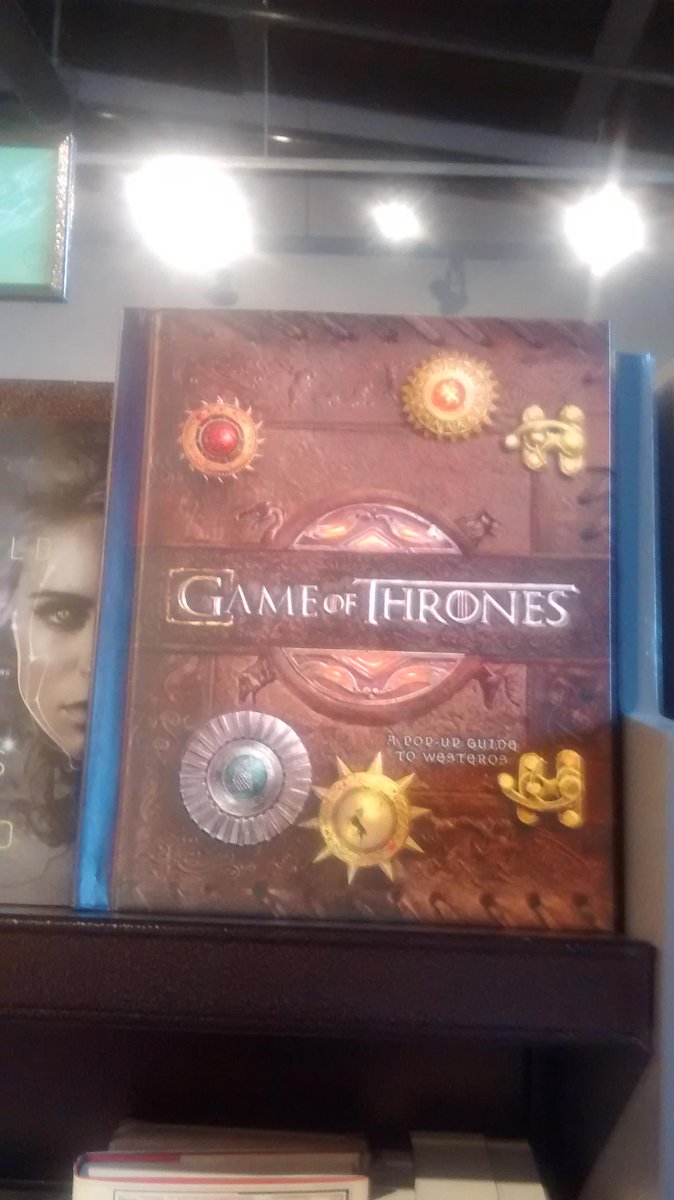
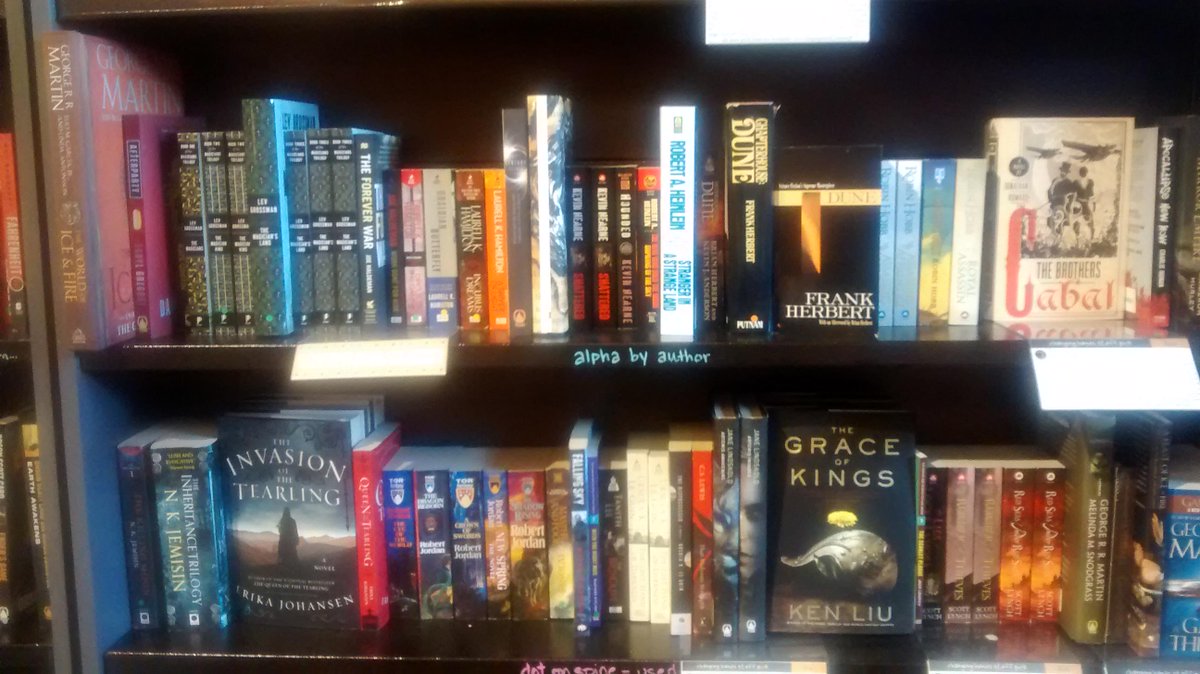






 Ken St. Andre
Ken St. Andre 








